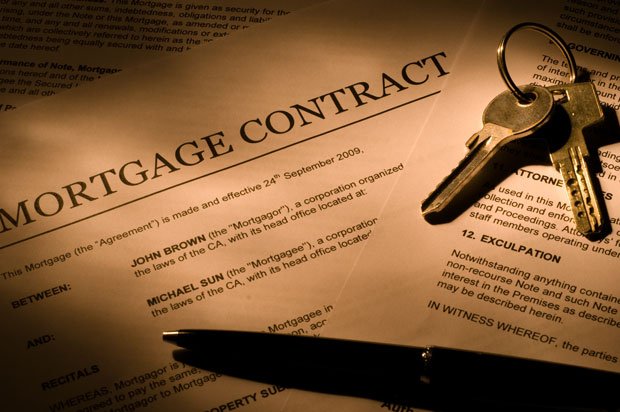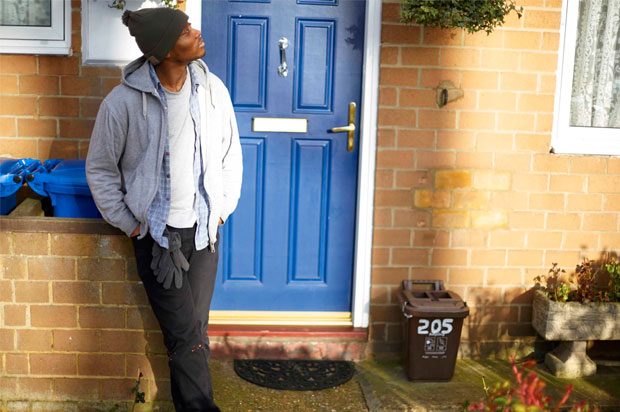Problems with buying a home
Buying a house is the biggest financial decision you'll probably ever make, and therefore it's also one of the most stressful. Here are some of the problems to expect.

Why are we still waiting to exchange keys?!
Buying a home is a complicated process that requires mounds of paperwork written in legal jargon – it’s a lot to get your head round. Add to this some potential problems with your mortgage, estate agents, surveyors or the property itself and it can become a bit of a nightmare. Here’s what to expect if things go a bit sideways.
The bank won’t give me a mortgage
Want a mortgage? Be prepared for financial scrutiny. In recent years, lenders have become particularly nervous about who they lend to and how much, wanting at least 10% of the property value as a deposit as well as proof that you’re a reliable borrower. If you don’t want to give them cause for concern make sure your credit rating is squeaky clean.
The bank won’t give me a mortgage (for this particular property)
The property itself might also present a problem when applying for mortgage. Some lenders are reluctant to lend on unusual properties, flats in a tower block or those with a short lease. There’s also the danger as prices rise that they may value your property lower than the asking price. If, after they’ve conducted their valuation survey, this is the case, they might not lend you all the money you applied for.
I want to strangle the estate agent, is this normal?
Estate agents are normally hired to act on behalf of the person selling their house. They will show you round the property and act as a middleman between you and the seller.
They’re legally obliged to pass on any offer to the seller but sometimes don’t, for whatever reason. They might also pressure you into arranging a mortgage through their mortgage advisors. They are, of course, on commission, but it’s a good idea to arrange your mortgage independently. This is a big commitment, so don’t be bullied into making any decision you’re not comfortable with.
Find out if the estate agent you’re dealing with is a member of the National Association of Estate Agents. This is the industry body that sets down minimum codes of conduct.
The surveyor seems to expect £200 for tapping the wall a couple of times
Once your offer’s been accepted you should get a survey done to see if the property has any structural problems.
The surveyor’s report will point out any issues you should be aware of before going ahead with the purchase. If the report doesn’t mention any concerns and you have problems with the property after you’ve bought it, you might be able to claim compensation from the surveyor’s indemnity insurance. But more often than not, the small print covers them for claims, so read it carefully.
My solicitor has gone quiet on me
When you buy a property you need to instruct a solicitor or conveyancer to do the legal work for you.
Often the initial flurry of activity is followed by a long period of silence. It’s down to them to keep you informed, but if you think your solicitor is taking too long to get things moving don’t be afraid to call them regularly for an update.
What’s this massive solicitor’s bill?
Hidden costs can also be an issue, so ask for a quote for how much the legal work will cost before you commit to their services. If you later get the bill and it seems too high, check all the various costs are clearly itemised and ask the solicitor about anything you don’t understand. If you’re still not happy you can complain to the Council for Licensed Conveyancers.
Why didn’t anyone tell me about the new motorway/theme park/superstore?
If there’s something that may affect the property’s value, e.g. a new airport planned for nearby, and the solicitor didn’t tell you, then you might be entitled to compensation. In the first instance, take this up with the firm concerned. If you’re not happy with the outcome, take your case to the Legal Ombudsman Service or Council for Licensed Conveyancers.
The house was a state when I moved in
The seller should clear the property of all their belongings before you move in. If they’ve left a loft full of rubbish for you to dispose of you can arrange to have it removed and try to recover the money from them through your solicitor.
During the sales process, your solicitor should give you a fixtures and fittings list detailing everything the seller will leave behind, such as light fittings, carpets and kitchen cupboards. If, however, they’ve stripped the place bare then your solicitor should be able to resolve the problem with the seller’s solicitor.
Thanks to CAB for help with this article.
Next Steps
- Shelter's advice website for young people offers help with housing problems and a free helpline 0808 800 4444. If you're in Scotland, use http://scotland.shelter.org.uk/ instead.
- Chat about this subject on our Discussion Boards.
By Emma Lunn
Updated on 29-Sep-2015
No featured article












